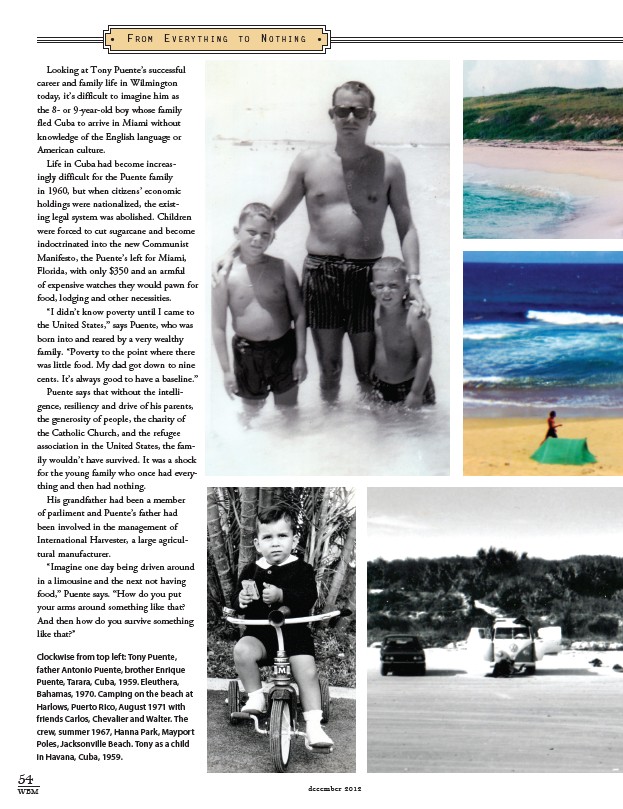
• F r o m E v e r y t h i n g t o N o t h i n g •
Looking at Tony Puente’s successful
career and family life in Wilmington
today, it’s difficult to imagine him as
the 8- or 9-year-old boy whose family
fled Cuba to arrive in Miami without
knowledge of the English language or
American culture.
Life in Cuba had become increasingly
difficult for the Puente family
in 1960, but when citizens’ economic
holdings were nationalized, the existing
legal system was abolished. Children
were forced to cut sugarcane and become
indoctrinated into the new Communist
Manifesto, the Puente’s left for Miami,
Florida, with only $350 and an armful
of expensive watches they would pawn for
food, lodging and other necessities.
“I didn’t know poverty until I came to
the United States,” says Puente, who was
born into and reared by a very wealthy
family. “Poverty to the point where there
was little food. My dad got down to nine
cents. It’s always good to have a baseline.”
Puente says that without the intelligence,
resiliency and drive of his parents,
the generosity of people, the charity of
the Catholic Church, and the refugee
association in the United States, the family
wouldn’t have survived. It was a shock
for the young family who once had everything
and then had nothing.
His grandfather had been a member
of parliment and Puente’s father had
been involved in the management of
International Harvester, a large agricultural
manufacturer.
“Imagine one day being driven around
in a limousine and the next not having
food,” Puente says. “How do you put
your arms around something like that?
And then how do you survive something
like that?”
Clockwise from top left: Tony Puente,
father Antonio Puente, brother Enrique
Puente, Tarara, Cuba, 1959. Eleuthera,
Bahamas, 1970. Camping on the beach at
Harlows, Puerto Rico, August 1971 with
friends Carlos, Chevalier and Walter. The
crew, summer 1967, Hanna Park, Mayport
Poles, Jacksonville Beach. Tony as a child
in Havana, Cuba, 1959.
54
WBM december 2012